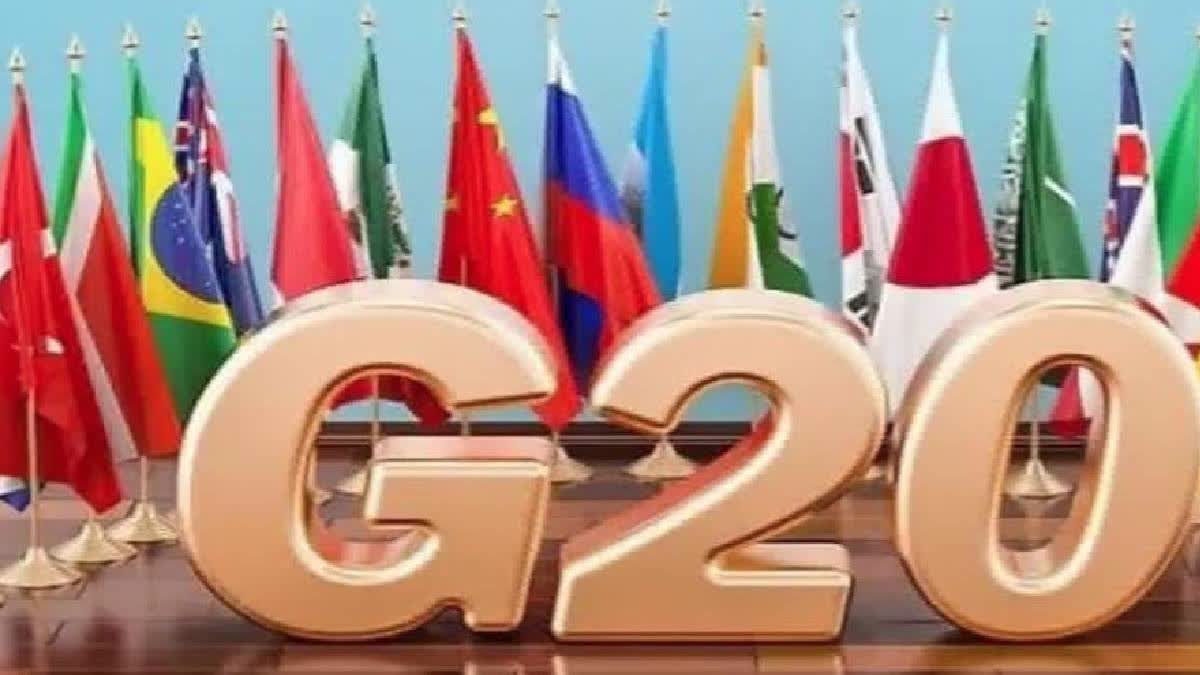New Delhi:Following the end of the Cold War, India has been playing a key role in building a multipolar world in what is New Delhi’s reflection of its commitment to a more just, balanced, and cooperative global order. India’s economic growth, diplomatic efforts, strategic partnerships, soft power, commitment to peaceful conflict resolution, and climate change leadership make it an influential player on the world stage.
In fact, even during the Cold War, India's foreign policy was characterised by a commitment to multilateralism and diplomacy. As a founding member of the Non-Aligned Movement (NAM) and an active participant in international organisations like the UN, India has always sought to address global challenges through dialogue and cooperation. Its diplomatic efforts contribute to the formation of inclusive alliances and coalitions that transcend traditional power blocs.
This has again been reflected in the New Delhi Declaration that was released following the G20 Summit that was held this weekend. “The global order has undergone dramatic changes since the Second World War due to economic growth and prosperity, decolonisation, demographic dividends, technological achievements, the emergence of new economic powers and deeper international cooperation,” the Declaration states.
It further stated that the need for revitalised multilateralism to adequately address contemporary global challenges of the 21st century, and to make global governance more representative, effective, transparent and accountable, has been voiced at multiple fora. “In this context, a more inclusive and reinvigorated multilateralism and reform aimed at implementing the 2030 agenda is essential,” it stated.
In fact, the African Union’s (AU) inclusion as a permanent member of the G20, an intergovernmental forum of 19 leading developed and developing nations and the European Union (EU) should be seen in this context. It was at India’s initiative that the AU has been accepted in the G20. In doing so, India has successfully projected itself as the voice of the Global South.
India has also been calling for a reformed international financial system that can address the needs of the poor and vulnerable countries. This was reflected in the New Delhi Declaration, which states: “The 21st century also requires an international development finance system that is fit for purpose, including for the scale of need and depth of the shocks facing developing countries, in particular the poorest and most vulnerable. We are working to deliver better, bigger and more effective MDBs (multilateral development banks) by enhancing operating models, improving responsiveness and accessibility, and substantially increasing financing capacity to maximise development impact. Stronger MDBs will be important to our efforts to mobilise financing from all sources for a quantum jump from billions to trillions of dollars for development.”
India is also among the foremost voices in the world calling for reforms in the UN Security Council (UNSC). India is part of the G4 which also includes Brazil, Germany and Japan, who are supporting each other’s bids for permanent membership of the UNSC.
In his remarks at the third and concluding session themed ‘One Future’ of the G20 Summit here on Sunday, Prime Minister Narendra Modi said that to take the world towards a better future, it is necessary that global systems are in accordance with the realities of the present. “Today, the UN Security Council is also an example of this,” Modi said. “When the UN was established, the world at that time was completely different from what it is today. At that time, there were 51 founding members in the UN. Today the number of countries included in the UN is around 200.”
He said that despite this, the number of permanent members in the UNSC is still the same. “From then till today the world has changed a lot in every respect. Be it transport, communication, health, or education, every sector has been transformed. These new realities should be reflected in our new global structure,” Modi added.
India’s attempts to build a multipolar world also assume significance due to the security threats that the world faces today, particularly Russia’s war in Ukraine and China’s hegemony in the Indo-Pacific, a region that stretched from the east coast of Japan to the east coast of Africa. India is part of a Quad that also includes the US, Japan and Australia working for a free and open Indo-Pacific in view of Beijing’s belligerence in the region.
India’s worldview is amply reflected by these seven words in the G20’s New Delhi Declaration: “Today’s era must not be of war.”
